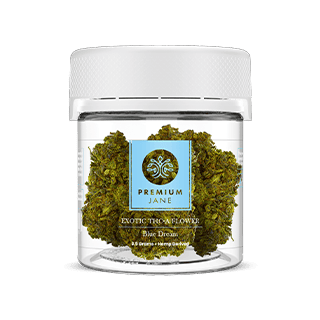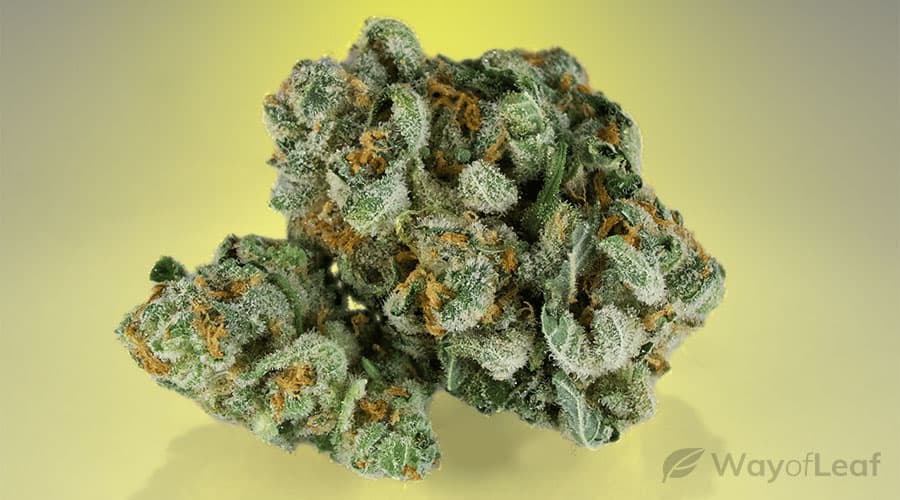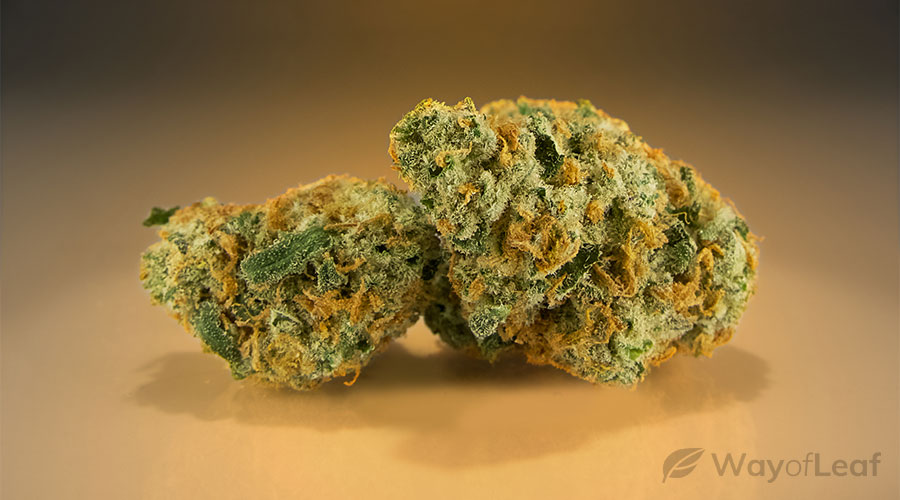It is estimated that around 350 million individuals suffer from depression worldwide, and this is just one of the many mood disorders that exist. Most people can relate to mood disorders and the difficulties they can bring. A growing number of patients are using medical marijuana to address mood disorders. Reports suggest that cannabis could help to lessen a variety of symptoms in this area.
This article outlines five marijuana strains that some people may consider useful for mood disorders. It also provides important information on mood disorders while discussing the existing treatment options.
Millions of people are turning away from prescription drugs and shifting their attention to natural remedies such as cannabis, psychedelics, ketamine, and MDMA. WayofLeaf is dedicated to educating readers about the remarkable pain-relieving remedies of natural alternative therapies. Our free eBook teaches readers how various substances are revolutionizing healthcare – download it now for free using the link below:

Want to experience the qualities of THC-A flower? The amazing brand Premium Jane just launched their new line, including strains like OG Kush, Purple Cream, and Blue Dream Pie. Averaging 23% THC-A, there’s so much to love with these flowers. Try them today to get 20% off using WayofLeaf’s exclusive coupon code: THCAWOL
What Are Mood Disorders?
Mood disorders are complex and multi-dimensional. There are a lot of factors at play, especially when it comes to a professional making a diagnosis.
Mood disorders are classified into distinct types, and diagnosis is made only by a medical provider. Some of the most well-understood mood disorders include:
- Bipolar disorder
- Depressive disorder (severe depression)
- Persistent depressive disorder (a low-grade but long-lasting form of depression)
- Cyclothymia (mild bipolar disorder)
- Seasonal affective disorder
These conditions are some of the more common ones, but many other mood disorders exist.
Here’s a short explanation of three of the mood disorders outlined above.
Bipolar Disorder
Bipolar disorder is a complex mental condition in which the mind swings from mania to depression. This is only one possible pattern of bipolar, though. Many experience bipolar differently, making diagnoses sometimes challenging.
This condition is quite common, although it does not have a cure. The three primary factors that distinguish bipolar from other mood disorders involve distinctive changes in manic activity, energy levels, and mood.
Depressive Disorder
Depressive disorder, which does share some similarities with bipolar, is categorized primarily by a loss of interest in activities and a sad or depressed mood. This can severely impair functionality and progress within day-to-day life. As with bipolar, depressive disorder also has no cure.
Seasonal Affective Disorder
Seasonal affective disorder, or SAD, is cyclical and does not persist all year round or have unexpected stopping and starting points.
It is defined as a depressive disorder always appearing at the same time every year. It is typically treatable with the help of a professional and does not impair the ability to live day to day as much as bipolar or depressive disorders do.
Mood Disorder Causes and Symptoms
The causes of mood disorders are not truly fully understood, but they are thought to exist due to a combination of three factors:
- Genetic predisposition
- Environmental factors or life events
- Brain chemistry
Those who have family members with a mood disorder diagnosis are at greater risk of developing a mood disorder themselves. Other times, environmental factors or traumatic life events can trigger an episode that can persist for long periods and repeatedly arise throughout life. Chemicals in the brain also influence mood disorders, either by not being present in proper amounts or by not interacting properly.
For many with mood disorders, their conditions are usually a blend of all three of these factors. Scientists need to conduct more research regarding mood disorders so that they can discover further information and use it to help all those with these often debilitating conditions.
In general, the symptoms of mood disorders can vary significantly from person to person. However, here are some of the most common:
- The feeling of being helpless or hopeless, about life
- Ongoing sadness, emptiness, aloneness, or anxiousness
- Feeling excessively guilty, inadequate, or worthless
- Persistent low self-esteem
- Aggression, hostility, or irritability towards others
- Recurrent thoughts of suicide or a suicide attempt (these symptoms are extremely serious, and any individual with these symptoms should get help from a professional immediately)
- Loss of interest in activities or events that were once enjoyable, including decreased or nonexistent sexual drive
- Unusual sleeping patterns: sleeping too much or too little
- Difficulties with energy (fatigue) and loss of appetite (including loss of weight)
- Comfort or stress binge eating, or a sudden spike in weight
- Sensitivity to criticism or rejection
Conventional Medical Treatments
As of now, most mood disorders do not have an absolute, definitive cure. However, some conventional medical treatments have proven to be successful and have even allowed some individuals to begin living a normal life again.
Some common medications prescribed for depressive disorder patients include:
- SSRIs (e.g., Zoloft, Celexa, Prozac, Lexapro)
- SNRIs, (e.g., Cymbalta, Fetzima)
- MAOIs, (e.g., Parnate, Marplan, Nardil)
Many other medications and classes of medicines exist for the treatment of depressive disorder. There are just too many to cover them all in this article.
For bipolar disorder, doctors often prescribe medications other than antidepressants. Some individuals are given a combination of drugs, which can include an antidepressant, such as one of the common types listed above. Some other frequently prescribed bipolar medications include:
- Mood stabilizers (e.g., Lithobid, Depakote, Lamictal)
- Antipsychotics (e.g., Zyprexa, Seroquel, Geodon, Latuda)
- Benzodiazepines (anti-anxiety medication)
Doctors often prescribe some combination of these medications to individuals with severe bipolar disorder. Professionals and medical experts believe that the correct combination of medication and traditional talk therapy can be an especially effective method of managing mood disorders.
Medical Marijuana and Mood Disorders
The trend among cannabis and medical conditions tends to be that marijuana assists with some of the symptoms of the ailment. However, with mood disorders, cannabis often takes a step further with its ability to generate a lasting impact.

Depression, specifically, and the depressive side of bipolar, seem to be quite responsive to the consumption of certain marijuana strains.
Although cannabis can also assist in lessening the impact of some symptoms of mood disorders (e.g., fatigue, insomnia, lack of appetite, aggression, etc.), it also acts to relieve depression itself.
Therefore, many patients are turning towards cannabis as an alternative to conventional medications and therapies. Additionally, the use of medical cannabis for depression relief, combined with regular talk therapy, acts as a sturdy combination for some individuals with depression.
However, further research into the efficacy of marijuana for mood disorders is necessary.
5 Marijuana Strains for Mood Disorders
Before proceeding, it’s important to point out that none of the following marijuana strains are necessarily the ‘best’ option for mood disorders. However, each has effects that some people may find helpful as they look to combat the symptoms they feel.
1. Lamb’s Bread (sativa)
A potent sativa with sticky, green buds, Lamb’s Bread is a quintessential marijuana strain for assisting those who suffer from depression, stress, or a combination of the two.

It is an especially uplifting marijuana strain that acts as an energizer, working to fight against fatigue. This strain may also bring about happy vibes and positive introspection. This can help offset some of the sadness and fatigue patients with depression may experience.
2. Headband (hybrid)
A world-famous mix of OG Kush and Sour Diesel, the Headband hybrid marijuana strain is high in THC, making just a tiny amount go a very long way.

Patients with mood disorders may discover fast relief from depressive symptoms thanks to this mood-heightening marijuana strain. With a THC concentration of around 20-27%, Headband packs a powerful punch.
3. Northern Lights (indica)
Northern Lights is one of the most famous indicas within the marijuana community, but helping mood disorders is one of its often forgotten specialties.

NL could numb the mind and body, bringing about complete relaxation and, eventually, sedation. This feature is useful for individuals with bipolar who are experiencing a period of mania and need to calm down.
This indica will do just the trick, allowing its users to sleep soundly, waking up the next morning feeling more balanced and refreshed. It is also an ideal marijuana strain for those who struggle with insomnia and lack of appetite.
4. Green Crack (sativa)
Although Green Crack is not suitable for all mood disorder patients, it can be helpful for those who suffer from purely depressive symptoms and have trouble getting out of bed during the day.

As the name suggests, this sativa is ultra-energizing, which means that it could cause fatigue and oversleeping to become things of the past. It could motivate those who are feeling sad or hopeless to take that first and often difficult first step when beginning their day.
5. Cannatonic (hybrid)
Flaunting a rare 1:1 CBD to THC ratio (it can also be as high as 2:1) Cannatonic may help alleviate the painful and debilitating symptoms of many medical conditions, including depression.

In addition, it may help to numb chronic pain, stimulate appetite, and uplift the spirit while also relaxing muscles and body tension. All this helps make it easier to unwind and even fall asleep if you are feeling tense.
Millions of people are turning away from prescription drugs and shifting their attention to natural remedies such as cannabis, psychedelics, ketamine, and MDMA. WayofLeaf is dedicated to educating readers about the remarkable pain-relieving remedies of natural alternative therapies. Our free eBook teaches readers how various substances are revolutionizing healthcare – download it now for free using the link below:
Final Thoughts About Marijuana and Mood Disorders:
Although some research shows the effectiveness of cannabis on the symptoms associated with mood disorders, none of what is written in this article should be taken as medical advice. You should always consult with a licensed professional before making any decisions regarding individualized treatment.
Only you and your physician can decide what is right for you. It is important to remember that the consumption of marijuana is the sole responsibility of the user, and discretion should always be taken.

Want to experience the qualities of THC-A flower? The amazing brand Premium Jane just launched their new line, including strains like OG Kush, Purple Cream, and Blue Dream Pie. Averaging 23% THC-A, there’s so much to love with these flowers. Try them today to get 20% off using WayofLeaf’s exclusive coupon code: THCAWOL


![Do Terpenes Get You High? [Understand the Facts!]](https://wayofleaf.com/wp-content/uploads/2019/08/mj_do_terpenes_get_you_high_1920-min-640x225.jpg)


![Weed & Antidepressants: Can They Work Together? [Explained]](https://wayofleaf.com/wp-content/uploads/2019/04/mj_cannabis-with-antidepressants_1920-640x225.jpg)
![5 Best Cannabis Strains for Glaucoma [That Actually Work]](https://wayofleaf.com/wp-content/uploads/2019/03/mj_5-best-strains-for-glaucoma_1920-640x225.jpg)







